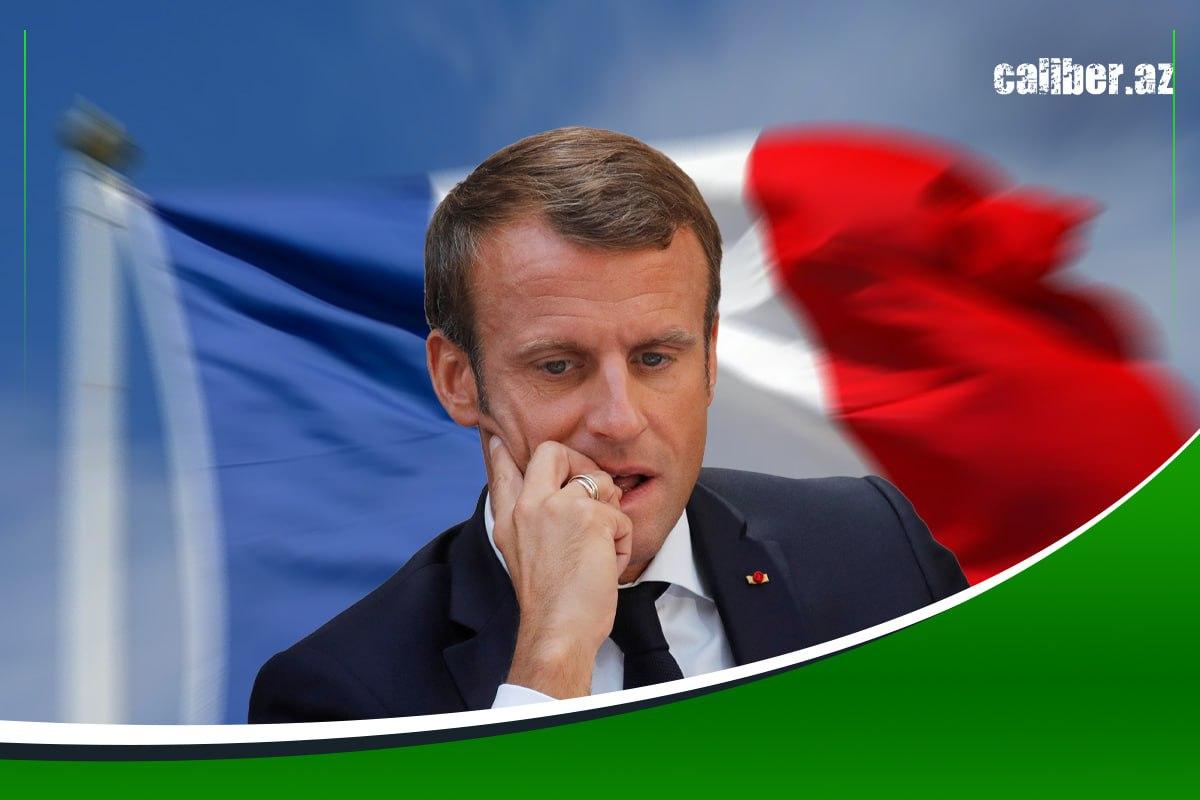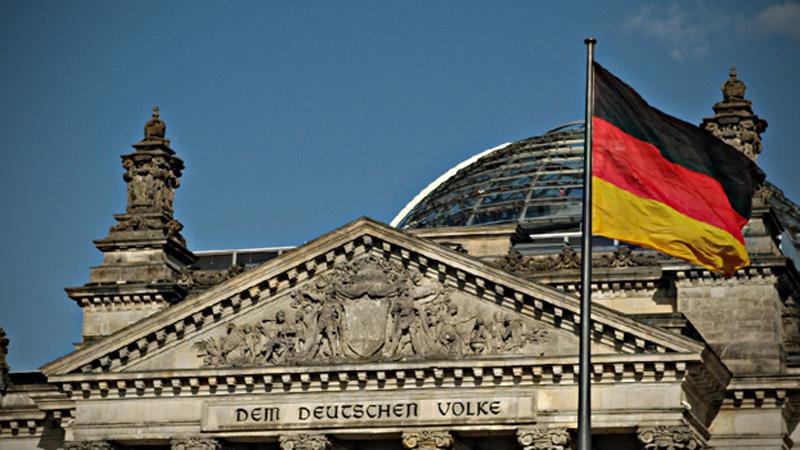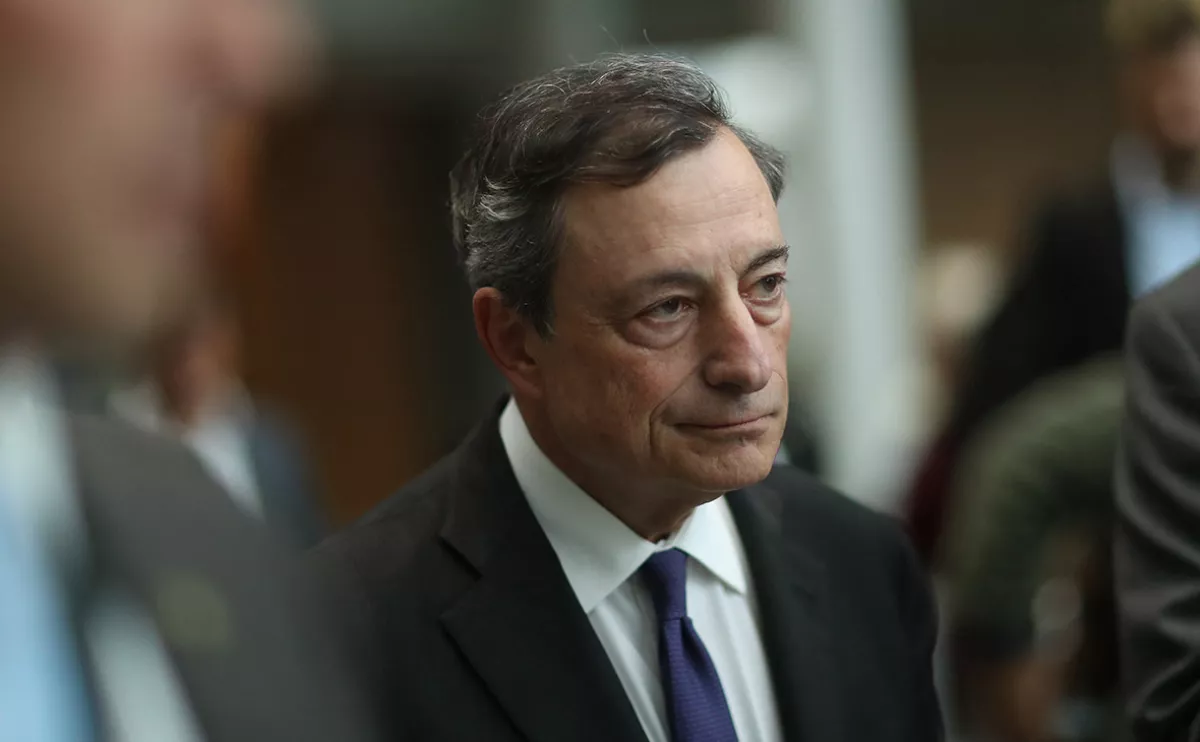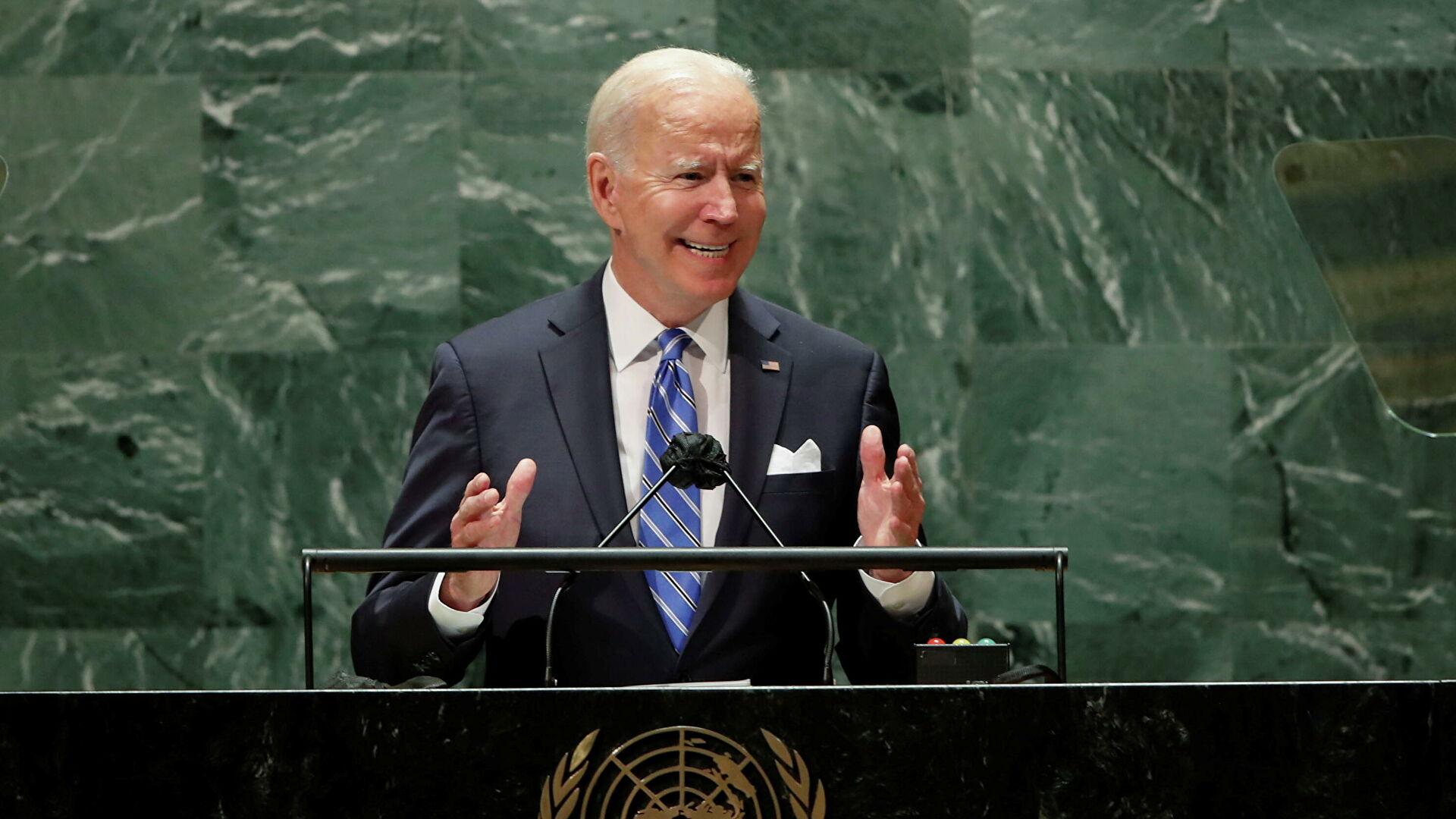Frenemies: "Collective West" torn by contradictions From Allies to Adversaries
This week, NATO countries will begin to reassess their policy towards Russia. Even on such a crucial issue, serious contradictions exist within the main military organization of the "collective West": some countries are practically at war with the Russian Federation, while others continue official contacts with it.
Undoubtedly, the community of Western and pro-Western countries led by the United States plays a key role in modern global politics. However, its unity is fragile. There is a lack of mutual trust within the EU and NATO, and conflicts are multiplying, often swept under the rug by mainstream liberal media. Moreover, relations between EU-NATO states and the United States are deteriorating. The structures of the "global West" are functioning particularly poorly in other areas, especially in Asia.
EU has "5-10 years" left
Disputes within the EU and NATO regularly demonstrate that these organizations comprise countries with diametrically opposed interests. Harmonizing these interests often leads to the creation of opaque bureaucratic institutions rather than genuine compromises. Indeed, finding such compromises can be quite challenging; due to the ideologized expansion of the EU and NATO, numerous new members with interests incompatible with those of the original EU and NATO members have joined these organizations. Meanwhile, the expansion of both unions continues toward the Balkans, Eastern Europe, and the South Caucasus, inevitably intensifying contradictions within the EU and NATO. Originally, these organizations were constructed quite differently, focusing on pragmatic solutions to specific problems under a functional principle of "as long as it works," rather than through metaphysical discussions among liberal theologians about "European identity" or "Western civilization."
Last week, French President Macron lamented once again that the EU is wobbling significantly and could "perish" in 5-10 years if it does not address the tensions among member states. He has been warning of such a scenario for some time. For instance, this spring, Macron proclaimed at the Sorbonne: "the risk is immense of [Europe] being weakened or even relegated. We must be clearly aware: Europe is mortal and can die." He called for strategic and technological independence from the United States and an increase in military cooperation within the EU, arguing that Europe “must show that it is never a vassal of the United States."

With his dismal approval ratings, Macron is unlikely to effect any significant change in the European Union—he even failed to unseat Ursula von der Leyen this summer, let alone address more substantial issues. NATO is not inclined to allow the EU to undertake any independent military actions, which represents yet another fundamental conflict within the ranks of the "collective West." The North Atlantic Alliance has essentially become an instrument of US control over the European Union. Before stepping down as NATO Secretary-General, Jens Stoltenberg issued a stern warning to the EU in September against "duplication" or competition with NATO, allowing only for "additional efforts" to support NATO. In other words, Stoltenberg, as a true Euro-Atlanticist, cautioned Europeans against building their security without the US and handed over the position to another American favourite—the former Prime Minister of the Netherlands, Mark Rutte.
Perhaps Macron is exaggerating the problems within the EU to distract the public from issues at home. However, this is not merely a matter of abstract disagreements among top leadership regarding strategic approaches. The tangible manifestations of discord among European countries are already evident in everyday life. In recent weeks, we have witnessed the fragmentation of the EU's common policy regarding the external borders of its member states and migration. It is worth recalling that this policy withstood the challenges of the pandemic when the EU firmly closed its external borders but, adhering to its ideological dogmas, did not touch the internal ones, allowing the virus to spread from Lisbon to Bialystok!
Now, in mid-September, Germany has crossed this line by announcing the introduction of border controls within the EU. The Netherlands quickly followed suit with a similar announcement. Mainstream liberal media deftly obscured the disintegration of one of the EU's key agreements, claiming that this was simply due to right-wing extremists coming to power in the Netherlands and stirring trouble. However, several Eastern European countries—from Poland to Hungary and the Baltic republics—have been disregarding EU norms on migration for years, initially covertly and then openly employing extreme physical violence to force refugees to return to where they came from. They have done this despite changes in leadership—such as in Poland—toward a more liberal and radically pro-American stance.
However, even this semi-collapse of Schengen and the EU's principles of free movement is overshadowed by the emergence of new details regarding how one EU-NATO country has fallen victim to strategic sabotage, with, to put it mildly, highly probable involvement from another EU-NATO country. We are referring to the sabotage of the Nord Stream pipelines by certain Ukrainian forces, which, as suggested by German investigations, also implicated Polish state structures. The destruction of a major gas pipeline is, in fact, an act of war—what better illustration could there be of sentiments within NATO, not to mention the atmosphere in the EU, where security disputes are compounded by numerous other frictions?

It is no surprise that disputes within the EU-NATO extend even to economic spheres where they had previously been absent. For example, at the end of September, the leadership of Germany's leading bank, Commerzbank, warned the German government that a potential merger with Italy's Unicredit would jeopardize the German credit industry. According to German bankers, the Italian bank would relocate the decision-making centre for lending to German economic entities to Italy, which is unacceptable from the perspective of German economic interests. Similar discussions had taken place in the 2010s regarding the expansion of Chinese business in the EU, while such debates were entirely absent in the 2000s. But times have changed; today, the Germans are even wary of the Italians.
US distrusts both Europeans and Japanese
But perhaps the problem lies with the squabbling Europeans, who argue among themselves, while the pragmatic Americans successfully forge relationships with their allies, maintaining the cohesion of the "collective West"? However, this is not the case either: disputes between the US and European countries persist not only along NATO lines but also within the EU. The global liberal establishment tends to attribute the problems between them to specific political forces, particularly the former and likely future US President Trump and his supporters, who allegedly disregard their European partners.
Yet, the disputes between the EU and the U.S. are not merely about the ambitions of individual political factions; they stem from fundamental differences between the two sides that are insurmountable under the current circumstances, as Washington seeks to maintain global hegemony by "carving out" significant portions of its allies' living economies. During the presidency of Biden, who is favoured by liberals (as opposed to the despised Trump), the EU and the US avoided economic warfare only due to the inability of European leaders to defend the interests of their countries in a situation where the US began luring away the most advanced industrial sectors, offering substantial subsidies and preferences.
A striking example of the current EU leadership's unwillingness to call things by their names and defend the economies of EU countries against American claims is the report published last month by former President of the European Central Bank, Mario Draghi. In it, he noted the growing lag of the EU economy behind those of the US and Asian economies in terms of investment, competitiveness, modern technologies, and industry. However, the blame was placed on everyone but the US. China is becoming increasingly closed, and “Europe has abruptly lost its most important supplier of energy, Russia," the document states, as if the root cause of the problems with Russia and China were not the EU's servile adherence to American policies aimed at countering both countries.
Draghi is hesitant to address the blatant siphoning off of advanced technological developments to the US, merely noting that the conditions for such ventures are better there, as if the multibillion-dollar subsidies and benefits provided by Washington, contrary to the interests of its allies, have nothing to do with it. The authors of the report only dare to lament that between 2008 and 2021, nearly one in three "unicorn" startups established in the EU (companies whose valuation reached or exceeded $1 billion within less than ten years of their founding) relocated abroad, primarily to the US. No matter how much one distorts material reality, it will eventually come back to hit you harder. The indicators are already evident: the low approval ratings of the leaders of France and Germany, the rise of radical opposition across the EU, the challenges faced by even established European firms like Volkswagen, which are shutting down production at home, and the expected GDP decline in Germany this year, which will inevitably weaken the entire EU.
In other words, the political-economic foundation of the European segment of the "collective West" has been undermined by the efforts of the US government, with the Biden administration making a significant contribution to this over the past four years. As a result, new political forces that are already rising to power in European countries are likely to reassess their alliances with the US in the coming years.
However, in other areas, the situation for the Americans is no better. At times, it seems that due to the degradation of American global power, the only thing they can currently offer their closest allies is military strength. Economic cooperation is hindered by a lack of trust—joint ventures are only feasible under American control. For instance, the US is still open to working with microelectronics manufacturers in the separatist entity of Chinese Taiwan, who are dependent on the US for their operations. However, with the more independent South Korea, the Americans take a different approach, attempting to lure Korean manufacturers and technologies to the US.
In early September, President Biden proudly recounted how he visited South Korea to demand the effective transfer of semiconductor manufacturing plants to the US. Unlike the Europeans, the Koreans are not willing to capitulate to the global hegemon—Seoul has been protesting for several years against the subsidies provided by the US government to American firms aimed at squeezing out foreign microelectronics producers, all while accompanied by the usual rhetoric about the "free market." The seriousness of this issue is evident in the fact that South Korea has chosen to air its grievances, even though it is tightly linked to the US in military terms and hosts a substantial contingent of American soldiers.
Another recent example of the striking distrust between Washington and its traditional allies emerged in September. Amid reports of new American missile deployments to Japan "to protect our traditional partner," President Biden vowed to prohibit the sale of American steelmaking company USSC to Japanese interests. This promise was echoed by likely future presidential candidate Donald Trump, his opponent Kamala Harris, and other influential Democrats and Republicans in Congress, all emphasizing the need to "protect American industry."
Interestingly, employees of USSC held a rally in support of the merger with Nippon to preserve jobs, highlighting that the issue isn't a genuine concern for American workers but rather a reluctance to allow Japanese allies access to not even the most advanced segments of American industry.

Such actions by the Americans toward their closest ally, Japan, should not come as a surprise. In the spring, President Biden labelled Japan, along with another American ally—India—as well as Russia and China, as "xenophobic countries" incapable of proper development for that reason. Following the scandal, the White House refused to engage in any dialogue with its allies, stating that there was nothing offensive about such remarks. This provoked a storm of outrage in those countries, particularly in Japan, where memories of the 1980s and 1990s still linger. During that period, it was the Americans who effectively stifled the growth of Japan's burgeoning high-tech industry, which had been poised for global leadership. They coerced Japan into abandoning partnerships with several nations through sanctions and threats, restricted access to capital, and constrained Japanese firms with unfavourable conditions in production chains. The Japanese endured these pressures, yet, as we can see, trust in Washington has not improved at all.
This is particularly noteworthy against the backdrop of how American elites plan to leverage Japan and other Asian countries in their confrontation with China. The Japanese have few options, as the Americans continue to maintain a significant military presence in Japan, effectively controlling the country’s security policies. This control extends to the point of absurdity: even the recent announcement regarding the deployment of new American missiles to the Japanese islands was made first by US officials, rather than Japanese ones. Tokyo has limited choices, but other countries are beginning to reconsider whether to align themselves with the "collective West" under American dictation.
For instance, just last week, India declined to participate in the formation of an anti-China alliance, dubbed "Asian NATO." It was not the first country to take such a stance; working with Washington has become overtly risky in recent years. For example, Saudi Arabia, tired of the American security dictate after decades of military partnership, has sought to diversify its alliances by strengthening ties with China. However, even this significant move by a key oil-producing ally has not prompted the Biden administration to reflect on what it might be doing wrong.
Certainly, the problems of the contemporary world order are not solely tied to individual leaders—be it Trump, Biden, Macron, Putin, Modi, or bureaucrats in Brussels like Ursula von der Leyen. The collapse of the current world order logically stems from fundamental decisions made by the Washington establishment regarding how to construct global governance following the West's triumph in the Cold War. The approach adopted was one of asserting that the US is the "indispensable nation, the sole global superpower, and the leading democracy." This mindset fostered a reluctance to negotiate or collaborate on equal terms with other nations.
Instead of pursuing inclusive growth and equitable interactions with all countries, the US constructed a system centred around itself, exploiting global sympathy following the 2001 terrorist attacks. This led to increasing distortions in the world economy, restricting access to technology, capital, knowledge, resources, and development opportunities for the majority of countries. Consequently, the very foundations of global economic growth were undermined, resulting in a series of crises worldwide.
Yet, rather than revising its policies, Washington persisted in its struggle to maintain hegemony, openly extracting resources from its allies to secure its dominance. This trajectory will eventually lead to the downfall of US alliances with other nations and will not spare the United States from decline.








